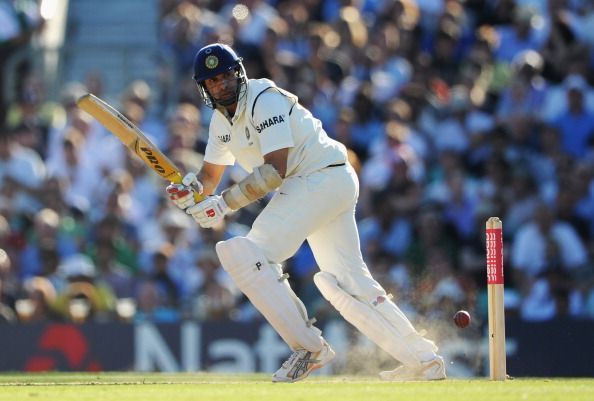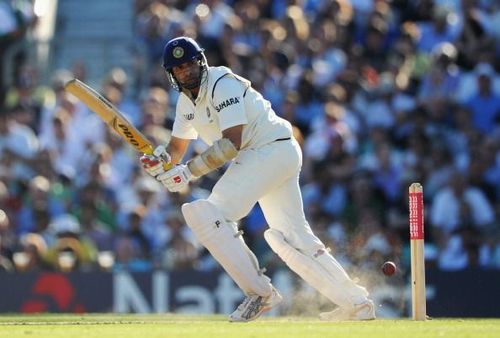
5 Indian batsmen who became specialists in just one format of the game

Test cricket, the longest format of the game demands the best out of every player. The format has been labeled so because it tests the formidability of players and teams both physically & mentally.
In comparison to T20 and One-day matches, test cricket is considered the highest form of cricket.
The mark of a good test batsman is not when he is hitting the ball outside the park but how well he is timing it to perfection with stroke play. Finally, test cricket is not everyone’s cup of tea.
However, with the advent of One-day and T20 matches in past three decades, test cricket has somewhere lost its charm.
All thanks to major cricketing boards for hosting test matches at regular intervals - the format is still alive and ticking.
Of late, as more and more test matches have started yielding results rather than tame draws which remained a trend in the era of 80s & 90s, test cricket still serves a lot of entertainment, especially in last two days of a test match.
In this edition, we are going to see five specialist Indian batsmen who evolved in just one format of the game. Although these players are household names in the cricketing world, their dominance remained in just one format of the game.
#1 VVS Laxman (Test Cricket)
VVS Laxman, fondly nicknamed as ‘Very Very Special Laxman’ by his teammates is a veteran of 134 test matches. He had his share of fair chances to play 86 ODIs for India but couldn’t succeed in the format.
His modest average of 30.76 in ODIs doesn’t go in metaphor to the class he displayed in the red ball format.
Laxman never represented India in T20 Internationals. In his career spanning more than 16 years (1996 – 2012), Laxman never got a chance to represent India in any of the world cups.
He is best remembered for his master-class knock of 281 in the 2001 Kolkata Test against Steve Waugh’s all-conquering Australian side.
His effort not only bailed India out of a crisis situation, but it was only the second instance in the history of the game when a team enforced to follow-on went on to win the match.